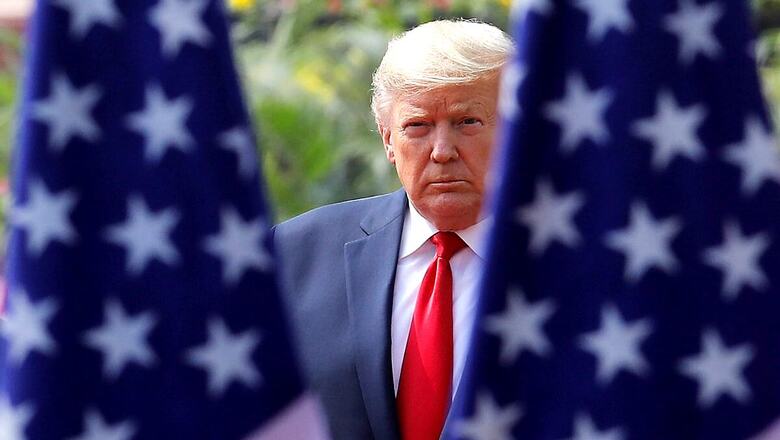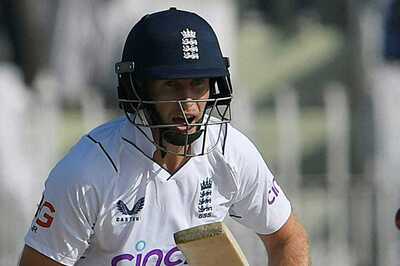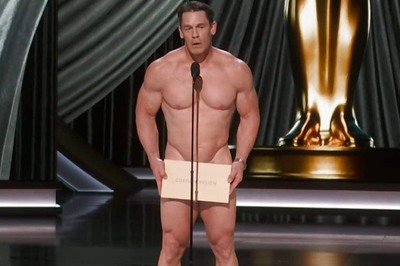
views
All eyes are on the United States Presidential elections scheduled for November 3. What if the results are contested by either of the candidates — sitting President Donald Trump or his opponent former vice president Joe Biden? Trailing Biden in national opinion polls, Trump wants a close contest. In one of his press conferences, Trump even said he would not move out of the White House if he lost. “I think this [the election] will end up in the Supreme Court, and I think it’s very important that we have nine justices,” Trump said, defending his decision to seek the appointment of a new Supreme Court justice in the short time before the election.
Trump has repeatedly claimed that elections would be rigged before voting takes place and he reiterated his suspicion in his first public debate with Biden on Tuesday. On peaceful transition of power, he said, “We are going to see what happens.”
The American elections are watched by the whole world. Every four years since 1787, after the first American President George Washington took oath on January 20, the president-elect bows before the nation and take the oath: “I do solemnly swear that I will faithfully execute the office of the President of the United States and will do the best of my ability, preserve, protect and defend the Constitution of the United States.”
This swearing-in ceremony signifies the smooth transition of powers.
This will not be the first time disputes might arise on the presidential results. At least four times in 1876, 1888, 1960, and 2000 the Americans witnessed such disputes about the poll result.
In recent times, there was a dispute in the 2000 polls between Republican candidate George W Bush and Democrat Al Gore. Gore conceded his defeat on election night but retracted it the next day arguing that the vote in Florida was too close to call. Many states were still using the punch card ballot, and this obsolete technology created a problem in Florida. Voter who was voting for Al Gore unknowingly voted for another candidate. When the matter was taken to US Supreme Court, Gore graciously conceded defeat the day after the court ruled the recount unconstitutional.
Even ahead of the 2016 Presidential election, Trump suggested the outcome would be “rigged.”He eventually won the White House despite losing the popular vote by some 3 million ballots.
Trump is preparing for his defense already. About the current polls, he said, “I know you’re going to be raising your hand, with me we may end up in a dispute for a long time because that’s the way they want it.’”
He is banking on many things which could go wrong. There could be a problem with the voting machines, election officials, a possible foreign interference and, above all, the COVID-19 impact. “I think mail-in voting is going to rig the election,” Trump told Fox News in a recent interview. The President told the media in the White House, “Get rid of the ballots and you’ll have a very peaceful — there won’t be a transfer, frankly. There will be a continuation.”
The Washington Post reported in July this year that even Biden doesn’t discount the possibility that Trump would make himself difficult to dislodge, but he suggested that others in government might escort him out of the White House. The US political analysts apprehend a reasonable fear that Trump could take such a dangerous step. Trump has consistently called on his supporters to act as poll watchers against election fraud.
The US Congress Speaker Nancy Pelosi was right when she said that the Democrats must win with a huge margin so that Trump can’t challenge the results.
Now that President Trump and First Lady Melania have announced they have tested positive, the Trump campaign might be affected. The larger question, is what would it mean for his re-election. A Covid-hit Trump’s ability to influence the polls is not known, as he is trailing Biden in both the polls and in fund-raising.
As a contrast, one must point out that India, which is the largest democracy in the world, the power transfer had been smooth for 17 times since Independence. The subcontinent has witnessed many military coups, including Pakistan, Bangladesh, Myanmar and Maldives, but India stood firm on democratic principles. The late President Pranab Mukherjee had once pointed out that Indian democracy has moved from strength to strength as the transfer of power from individuals as also from political parties has never posed any problem.



















Comments
0 comment